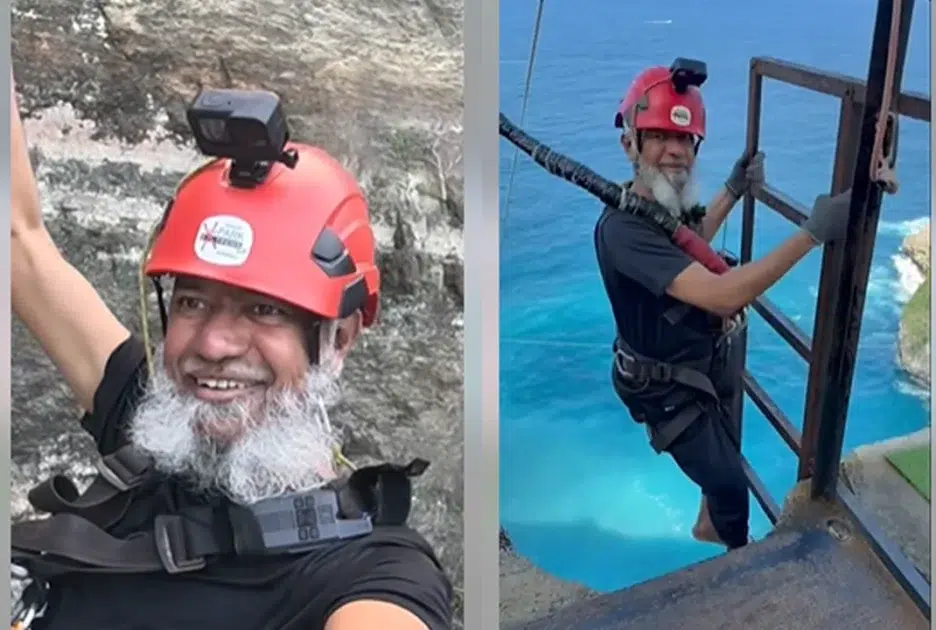BALI, INDONESIA — In a display of daring that has left many admirers both inspired and astonished, respected Islamic preacher and scholar, Dr. Zakir Naik, stunned the public on Thursday by leaping from a 430-foot-high coastal bungee platform in Bali, Indonesia.
The 59-year-old Indian-born televangelist, widely recognised for his deep Quranic knowledge and engaging interfaith dialogues, momentarily traded his traditional platform for a high-adrenaline escapade, sharing the jaw-dropping footage on his verified X (formerly Twitter) account. The post quickly gained traction among his followers, many of whom are more accustomed to his calm scholarly presentations than skyward rebounds over ocean cliffs.
Clad in relaxed casual wear and tethered securely by a striking red harness, Dr. Naik took the plunge from the towering edge overlooking the turquoise waters of Bali Beach. Spectators at the coastal resort watched in awe as the cleric descended at speed before springing upward in a dramatic rebound — a scene that merged fearlessness with sheer thrill.
Following the bungee jump, Dr. Naik was also seen preparing for a cliff-jumping session and attempting an extreme water slide at the same popular beach resort, activities he said were part of his desire to “face physical challenges as a reminder of spiritual discipline.”
This is not the scholar’s first foray into the world of extreme sports. During a 2024 visit to Uganda, he similarly attempted a 165-foot bungee jump at a recreational park in Jinja, an experience he described as “a test of faith and courage.” Thursday’s leap in Bali, however, now stands as his highest jump to date — a fact confirmed by local adventure tour operators who organised the session at his request.
Reactions to the development have been mixed. While a significant number of admirers praised the preacher’s adventurous spirit and ability to remain relatable to the youth, others were visibly surprised, questioning the compatibility of such stunts with his public image as a conservative religious authority. In response to the stir, Dr. Naik posted shortly afterward: “Life is a test of both mind and body. Grateful for the chance to conquer my fears.”
Known for his intellectual influence across Muslim communities in Asia and Africa, Dr. Naik has long encouraged mental discipline, physical fitness, and spiritual growth as pillars of a balanced Islamic life. Though his ventures into physically demanding pursuits are not widely publicised, his recent activities in Indonesia reveal a more personal side of the scholar — one unafraid to challenge himself outside the lecture hall.
Dr. Naik remains in Indonesia through the weekend, where he is scheduled to hold public lectures in Jakarta, engage in interfaith dialogue, and meet with local Muslim leaders. According to findings, his visit forms part of a broader Southeast Asian outreach tour, aimed at promoting peaceful coexistence, Da’wah, and youth engagement.
The events in Bali serve not only as a reminder of the scholar’s evolving public persona but also highlight a growing trend among respected figures seeking to connect with new generations through unconventional means. For Dr. Naik, the message appears clear: embracing life’s tests—whether on the stage or mid-air—can be an act of faith in itself.
